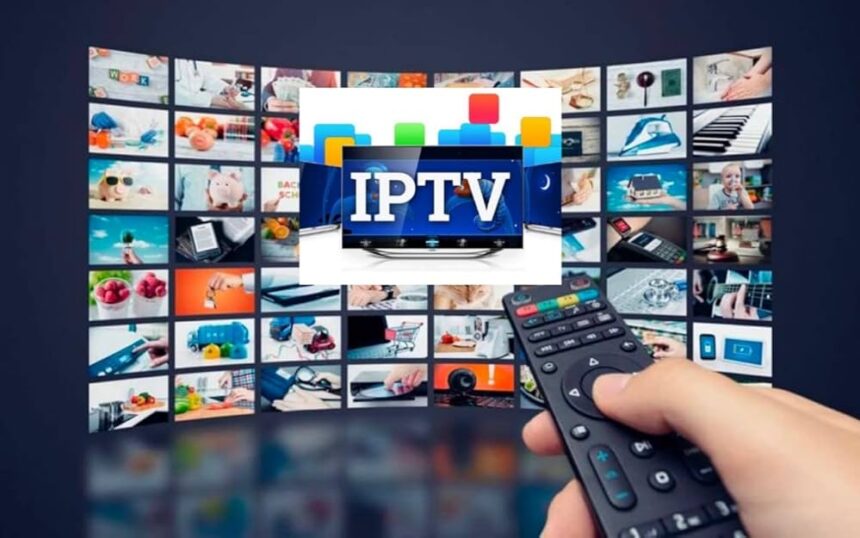The way we consume television content has undergone a remarkable transformation over the past decade. Traditional broadcast methods such as cable and satellite are steadily giving way to more flexible, internet-based solutions. Among the most influential technologies driving this change is IPTV—Internet Protocol Television. IPTV allows users to stream TV channels and on-demand content via the internet, offering a level of convenience, flexibility, and accessibility never seen before in conventional broadcasting.
If you’re considering a smarter way to watch TV, IPTV offers an innovative and reliable option with vast channel selections, premium streaming quality, and compatibility across numerous devices.
This article explores everything you need to know about IPTV: what it is, how it works, its benefits and drawbacks, its legal considerations, and how to choose the right IPTV provider. Whether you’re a tech enthusiast, a casual viewer, or someone looking to cut the cord from cable, this comprehensive guide will help you understand why IPTV is becoming the new standard in home entertainment.
What is IPTV?
IPTV stands for Internet Protocol Television. Unlike traditional cable or satellite TV, which transmits signals through physical infrastructure or satellite dishes, IPTV delivers television programming through the internet using IP networks.
This means that instead of receiving your favorite TV shows and channels via radio waves or coaxial cables, you receive them as streamed data over your internet connection. All you need is a compatible device and a stable internet connection to access live channels, video-on-demand (VoD), time-shifted content, and even cloud-based DVR services.
How Does IPTV Work?
The IPTV system relies on a broadband internet connection to transmit multimedia content. When a user subscribes to an IPTV service, they are typically provided with a playlist URL (like an M3U file) or login credentials for a platform using the Xtream Codes API. Once these credentials are loaded into an IPTV player or app, the user gains access to:
- Live Television – real-time broadcasts of global and local channels
- Video on Demand (VoD) – a library of movies, series, documentaries, and more
- Catch-up TV – previously aired programs, often available for up to 7 days
- Time-Shifted TV – pause, rewind, and fast-forward live television
Streaming quality typically ranges from SD (Standard Definition) to HD (High Definition) and even 4K, depending on your provider and internet bandwidth.
Types of IPTV Services
- Live IPTV: This functions much like traditional TV, offering real-time streaming of TV channels.
- VoD (Video on Demand): Access to a content library where users can pick and watch movies or shows whenever they want.
- Catch-Up TV: Allows users to re-watch programs that aired in the past few days.
- Start Over TV: Enables restarting a live broadcast from the beginning.
Devices Compatible with IPTV
One of the greatest advantages of IPTV is its versatility. Here’s a list of common devices where IPTV services can be used:
- Smart TVs (LG, Samsung, Android TV)
- Android TV Boxes (MAG, Formuler, Fire Stick)
- Computers (via web browser or software like VLC)
- Smartphones and Tablets (iOS and Android apps)
- Streaming Devices (Amazon Fire TV, Apple TV, Roku with third-party apps)
Benefits of IPTV
1. Wider Channel Selection
IPTV providers often include hundreds or even thousands of live channels from around the world, including premium sports, movies, news, documentaries, kids’ content, and international channels.
2. On-Demand Flexibility
With IPTV, viewers are no longer tied to broadcast schedules. On-demand libraries offer flexibility and freedom to watch what you want, when you want.
3. High-Quality Streaming
Most modern IPTV providers offer HD and 4K content, provided your internet connection is fast and stable.
4. Multi-Device Access
IPTV can be accessed across multiple devices, allowing users to enjoy content in various locations—from the living room to the subway.
5. Cost-Effective
Compared to satellite and cable subscriptions, IPTV services are generally more affordable, often without the need for additional hardware or installation fees.
6. No Contracts
Many IPTV providers offer monthly subscriptions with no long-term contracts, allowing users to cancel or switch providers easily.
Drawbacks of IPTV
Despite its many advantages, IPTV isn’t without its challenges:
- Internet Dependency: The quality of your IPTV service depends entirely on your internet connection.
- Potential for Buffering: Weak or unstable connections may lead to buffering or lag.
- Service Reliability: Some IPTV providers may suffer from inconsistent service or go offline without notice.
- Legal Ambiguity: Not all IPTV providers operate legally, which brings risks we will explore in more detail later.
Is IPTV Legal?
The legality of IPTV depends on the content source and provider licensing. IPTV itself is a legal technology, and many providers like Hulu Live, YouTube TV, and Netflix use IPTV technology to deliver content. However, the issue arises with unlicensed providers that distribute copyrighted content without proper rights.
To ensure you’re using IPTV legally:
- Choose a reputable provider with transparent operations.
- Avoid services offering premium content (like Sky Sports, HBO, etc.) at extremely low prices without licensing details.
- Verify the legitimacy of the channels offered.
Using illegal IPTV services can result in:
- Service interruptions
- Legal penalties
- Malware or cyber risks
How to Choose the Best IPTV Provider
Here are several key factors to consider when selecting a trustworthy IPTV service:
1. Content Variety
Ensure the provider offers the channels and VoD content you actually want to watch—whether it’s live sports, international TV, or local networks.
2. Streaming Quality
Look for providers that offer at least 1080p HD quality and optional 4K.
3. Customer Support
Reliable and quick support is essential if you encounter streaming issues or need help setting up.
4. Free Trial
A 24- or 48-hour free trial is a good sign that the provider is confident in their service.
5. Multi-Screen Support
Check if the service allows you to stream on multiple devices simultaneously.
6. Ease of Setup
Look for services that offer easy installation guides and compatibility with multiple apps and platforms.
Top IPTV Apps and Players
You’ll need a compatible IPTV player to load your provider’s credentials. Popular apps include:
- IPTV Smarters Pro
- TiviMate IPTV
- XCIPTV Player
- Smart IPTV (SIPTV)
- GSE Smart IPTV
- VLC Media Player
These apps allow features like EPG (Electronic Program Guide), parental controls, favorites, and account syncing.
Importance of VPN with IPTV
A Virtual Private Network (VPN) is often recommended for IPTV users for the following reasons:
- Online Privacy: Hides your IP address and encrypts your data.
- Bypass Geo-Restrictions: Access region-locked content.
- Avoid Throttling: ISPs may limit IPTV data streams; VPN helps bypass that.
- Security: Reduces risk when using public networks or less-known IPTV providers.
Recommended VPNs include NordVPN, ExpressVPN, and Surfshark.
IPTV in the UK and Europe
In regions like the UK and across Europe, IPTV adoption is growing rapidly. Many users are cutting the cord from traditional providers like Sky, Virgin, or BT in favor of more flexible and cost-effective IPTV options.
However, authorities have also been cracking down on illegal IPTV resellers. It’s vital to choose a legitimate provider with a focus on content rights and quality.
The Future of IPTV
IPTV is expected to continue its growth trajectory in the coming years. Key trends include:
- AI-Powered Content Recommendations
- Cloud DVR and Storage
- Interactive TV (with voting, shopping, and gaming)
- Ultra-HD and 8K Streaming
- Integrated Social Media Features
As more households upgrade their internet speeds and seek flexible entertainment solutions, IPTV is poised to become the primary method of content delivery.
Conclusion
IPTV is more than a passing trend—it’s a complete reimagining of how television is consumed in the digital age. With its affordability, flexibility, and vast content library, IPTV offers unmatched convenience for users worldwide.
For those looking to make the switch to a more dynamic, high-quality TV experience, consider exploring IPTV via a trusted provider. It’s time to take control of your entertainment and experience the future of television on your terms.


